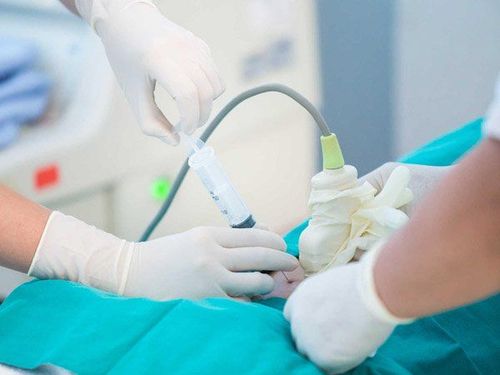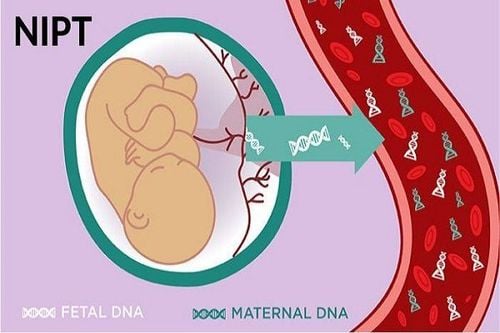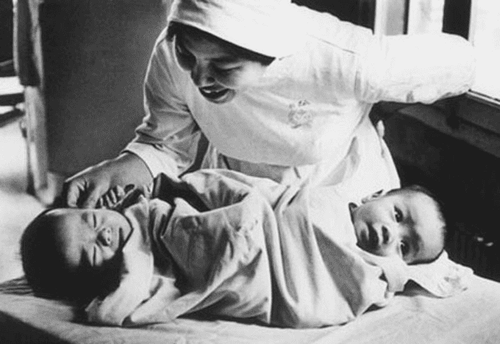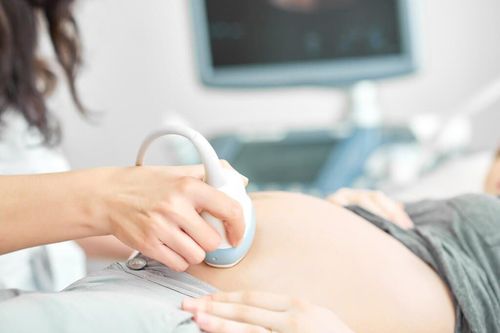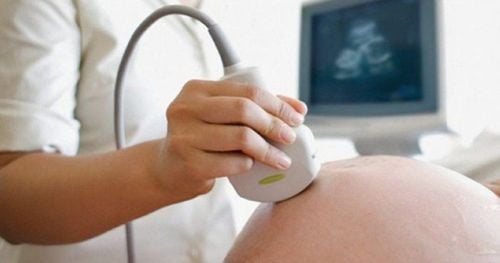This is an automatically translated article.
The article was consulted with Dr. Nguyen Anh Tu - Doctor of Obstetric Ultrasound - Prenatal Diagnosis - Department of Obstetrics - Vinmec Hai Phong International General Hospital.Pregnant women are indicated to do amniocentesis test in cases where it is absolutely necessary. For pregnant women with twins, amniocentesis requires sampling from two separate amniotic sacs. This leads to a higher risk of complications compared with a singleton pregnancy.
1. Amniocentesis in case of twin pregnancy
For pregnant women carrying twins, screening tests for birth defects often have reduced accuracy compared to singleton pregnancies. However, amniocentesis can provide relatively unambiguous information.Amniocentesis is a prenatal diagnostic test that gives the doctor more information about the baby's health from a sample of amniotic fluid taken from the mother's amniotic sac. A woman carrying twins has two amniotic sacs, so a twin amniocentesis needs to be performed on both of the mother's amniotic sacs. The purpose of this test is to determine if the fetus has problems related to genetic disorders or chromosomal abnormalities. A twin amniocentesis will send a picture of the chromosomes of both fetuses separately, so the doctor can say for sure that there is a problem. Anyone can have this procedure, especially those at high risk for genetic and chromosomal problems. Moreover, pregnant women carrying twins have problems with disorders, the risk of occurring in the fetus will also be higher.
The amniocentesis usually takes 20 to 30 minutes. For pregnant women with twins, this process may take longer due to the need to deal with two amniotic sacs. Before the procedure, the doctor will perform an ultrasound to measure the size and basic anatomy of the fetus, which also helps identify the amniotic sac, thereby assessing the safe distance of the baby and the placenta. pregnant. The mother lies on the examination table and is disinfected with an alcohol solution of iodine to reduce the risk of infection.
Then, the doctor uses a long, thin needle through the abdominal wall into the amniotic sac around the fetus to draw a volume of amniotic fluid about 15 to 20 ml. This process takes about 30 seconds. The fetus will continue to make some amount of amniotic fluid to make up for the loss of water. For a twin amniocentesis, the doctor inserts a needle twice into the uterus to collect amniotic fluid from both separate amniotic chambers.
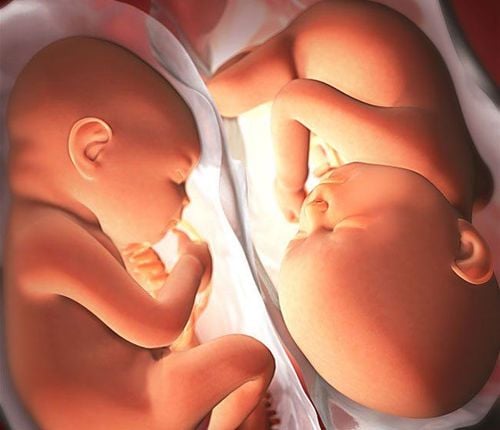
2. Risks of amniocentesis with twins
For pregnant women who have to perform amniocentesis, because the doctor has to conduct needle puncture twice, this process will take longer and also cause a lot of discomfort for the mother. Sometimes pregnant women feel cramping, stinging during the procedure or in some cases no discomfort at all. Your doctor may consider giving you a local anesthetic to minimize pain. After amniocentesis, the doctor checks the twins' heartbeats through the images on the ultrasound screen.Amniocentesis usually comes with certain risks, including miscarriage (about 1/500), rupture of membranes, infection. The risk is higher with amniocentesis for women with twins.
However, today's doctors have a lot of experience in obstetrics, medical facilities have also improved a lot, along with advanced medicine, so the risk of amniocentesis has been reduced. to the lowest level. Therefore, pregnant women with twins should not worry about having to perform amniocentesis, but should think about the benefits for the fetus, so that they can best prepare for the birth.
3. What to do after amniocentesis?
After the amniocentesis procedure, pregnant women should focus on resting, if there is work, they should only do light exercise and need someone to support them closely. The mother must also avoid sexual activity for 2-3 days afterward. Ideally, pregnant women should avoid going far, traveling, or flying to limit all possible risks, and resting at home also helps better control if the pregnant woman has severe symptoms. Especially for amniocentesis of twins, the recovery after the test needs to be absolutely guaranteed. Pregnant women with twins may have to stay in the hospital for some time to be monitored.Pregnant women will sometimes experience some contractions and light bleeding the next day, this is completely normal. However, if you experience cramping, significant vaginal bleeding, or abnormal amniotic fluid leakage, you should return to the hospital immediately to be checked, as these could be signs of a miscarriage. In addition, if you suddenly develop a fever after an amniocentesis procedure, you should also see your doctor because it is thought to be a sign of infection.

4. How long does amniocentesis have results?
Normally, the time to return results depends on the test performed with the amniotic fluid sample (QF, Karyotype, Array, WES...) and different tests have different results. During this time, the lab will analyze two samples of amniotic fluid from a woman carrying twins. Some of the live cells from the amniotic fluid are removed and allowed to divide for time, and then check the cells for chromosomal abnormalities or signs of genetic birth defects.In general, amniocentesis for twins is basically the same as amniocentesis for singleton pregnancies, but is more complicated because it has to be performed twice on two separate amniotic sacs. Pregnant women can discuss more with their doctor about the possible risks and the doctor should be someone who has experience in the care and treatment of pregnant women with twins.
Please dial HOTLINE for more information or register for an appointment HERE. Download MyVinmec app to make appointments faster and to manage your bookings easily.





